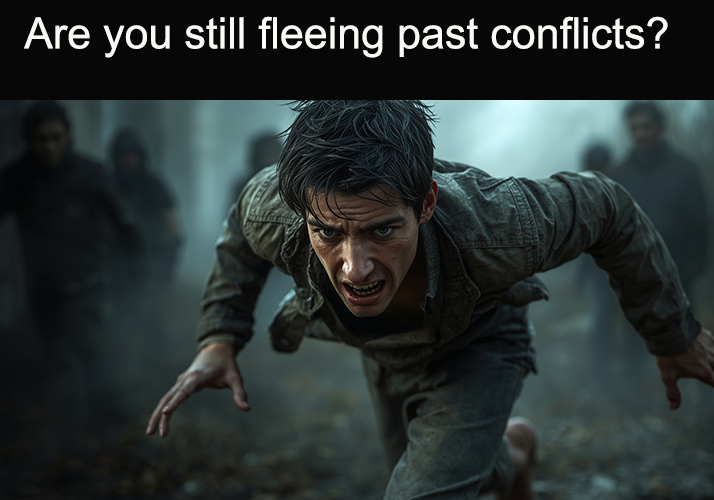The inability to free ourselves from past conflicts is the basis of almost all mental and physical problems. In my 49 years of counseling experience, I have found the primary source of all problems is the effort to be right rather than releasing oneself from the conflict.

I have read about forgiveness for many years, but never found a definition that worked for me, because of the lack of a definition that made sense. This week I discovered a definition that addresses all of the issues and I would like us to discuss this and see if it applies to our lives.
What Is Forgiveness?
(Definitions from Perplexity ai)
Forgiveness is the intentional and voluntary process of releasing feelings of resentment, anger, or desire for vengeance toward someone who has caused harm, regardless of whether they deserve forgiveness.
Psychological Understanding
Forgiveness involves a conscious transformation in one’s feelings and attitudes, so that the wronged person is no longer dominated by negative emotions and can develop compassion or empathy toward the offender. It is not equivalent to forgetting or condoning the offense, nor does it require reconciliation with the offender.
Benefits and Distinctions
By forgiving, individuals free themselves from corrosive anger and bitterness, leading to increased peace of mind and the ability to heal and move on. Forgiveness does not mean excusing harmful actions or absolving others of accountability; instead, it empowers the forgiver and focuses on their own emotional well-being.
Religious and Cultural Views
Most philosophies and religions recognize forgiveness as a virtue, encouraging it for spiritual and emotional growth. In many traditions, forgiveness is associated with mercy, grace, and letting go rather than retaliation, further underscoring its role in personal transformation and inner peace.
What Forgiveness Is Not
- It is not condoning or trivializing the offense.
- It does not require reconciliation or reconciling with the person who caused harm.
- It is not simply forgetting or excusing the wrong.
In essence, forgiveness is the act of letting go so that pain and anger no longer define a person’s life, creating space for healing and hope.
There are differences between forgiveness and reconciliation
Forgiveness and reconciliation are related concepts but have key differences in meaning and process.
Core Differences
- Forgiveness is an internal, individual act that involves letting go of resentment and anger toward someone who has wronged. It does not require the offender’s participation or even their awareness. This act of mercy mainly benefits the person doing the forgiving and is essential for personal peace.
-
- Reconciliation, on the other hand, is a collaborative process where both parties actively seek to restore a damaged relationship. This process demands participation from both sides — including acknowledgment of hurt, genuine efforts to rebuild trust, and sometimes significant changes in behavior.
-
Scenarios and Outcomes
- It is possible to forgive someone without reconciling, especially if reconciliation would not be safe, healthy, or possible. Forgiveness can happen in isolation and focuses on inner healing, while reconciliation seeks an outward restoration of relationship.
-
- Reconciliation is not always possible after wrongdoing, but forgiveness can be practiced regardless of circumstances or the other person’s response.
-
In summary, forgiveness is something one person can choose, regardless of the other, while reconciliation is a mutual journey that depends on the willingness and participation of all involved.
You can join us this Sunday on Zoom for a discussion about freeing ourselves from past conflicts and what it can mean for our futures. Join us at 12 noon EST US, using the usual link. If you do not have the link, send me an email at srtcounseling@gmail.com asking to join the workshop as a participant.
David St Lawrence
